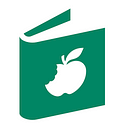Resilience — Why We All Need It to Succeed
The following is adapted from The Resilient Decision-Maker by Joseph Lampel, Aneesh Banerjee, and Ajay Bhalla.
In his short life to date, Milton has tried to build two businesses. Both have failed miserably. With two disastrous ventures at his back, he has been forced to declare bankruptcy. His credibility is in the gutter. His family, who have previously stood by him, are no longer willing to lend him more money or support him in any further entrepreneurial schemes.
Milton did try to find steady employment, but he did not settle for the quiet life. While he was trying new businesses — and failing repeatedly — he was also observing and learning. In due course, he established the Hershey Chocolate Company and never looked back. In 2018, more than seventy years after his death, the firm that bears his name still maintains a market cap of $20 billion and a 30 percent market share in its sector. Today, one can purchase Hershey’s chocolate in myriad forms: the famous Hershey bar, Hershey’s Kisses, Twizzlers, Reese’s Peanut Butter Cups, and dozens more varieties.
If failure challenged Milton Hershey in one way, his initial taste of success presented him with a different test. His first successful company was, in fact, a caramel company. He could have stopped right there and enjoyed the life of a prosperous businessman, but he wanted to go further. To the consternation of his friends and family, he decided to sell the caramel company and focus his energies on creating the milk chocolate bar. In explaining his decision, he famously commented that “caramels are just a fad, but chocolate is a permanent thing.”
What is the Secret?
What was the secret of Milton Hershey’s success? Let’s address that question by examining his decisions and exploring where he was right and where he was wrong. Hershey could not have become a success without making farsighted decisions that ultimately paid dividends. Yet he also made bad decisions that cost him dearly, not only in his early life but also in his later years.
We can also take note of Hershey’s willingness to learn. Failure is a ruthless yet effective teacher. Milton Hershey left school with a fourth-grade education, but he was always open to new experiences and sought to learn the lessons they held for him. Even so, trial and error did not always lead Hershey to the right business strategy. What is most striking about the arc of his life is that despite his many setbacks, he was not discouraged. In his journey from destitution to great wealth and back to voluntary poverty, he repeatedly bounced back from failure. Through thick and thin, Hershey consistently exercised resilience. Many qualities contributed to his success: he was highly intelligent, ambitious, and willing to learn. Above all, however, he was resilient.
Resilience is an underestimated yet essential quality. Read the story of a high achiever, in almost any field you can imagine, and there’s a high chance that resilience features heavily. History tells us that explorers, scientists, soldiers, politicians, entrepreneurs, and CEOs all owe their success to the ability to bounce back from poor decisions and recover from setbacks that would floor most people.
For this reason, researchers long associated resilience only with exceptional individuals. Recent research, however, gives the lie to this idea. Resilience is not exclusive to high-profile individuals. Every one of us can cultivate our resilience when we face up to unexpected challenges in life and business.
Resilience takes many forms and plays a part in shaping each of our individual lives — how many of us escape unexpected challenges? In this book, we want to focus on a particular type of resilience: the resilience required in the making of decisions. As individuals, our resilience shapes our own lives. When we run enterprises or work in teams, our resilience — or lack of it — has a wider impact. It has an impact on the health of our organizations and the experience of the people we work with. In these contexts, we can justifiably speak of leadership resilience and team resilience, in addition to individual resilience.
How is resilience relevant to your life, dear reader? Perhaps you’re a professional who deals with difficult situations, a businessperson faced with regular crises, or a manager deciding how to navigate organizational politics. We envisage that, even though you are good at what you do, you sometimes feel stretched to the limit of your endurance. Furthermore, like most people, you also encounter issues that require resilience in your private life.
To learn more about resilience, you can find The Resilient Decision-Maker on Amazon.
JOSEPH LAMPEL holds the Eddie Davies Chair in Enterprise and Innovation Management at the Alliance Manchester Business School. Winner of several research awards, he has published more than fifty articles and six books, including Strategy Safari, co-authored with Henry Minztberg and Bruce Ahlstrand.
ANEESH BANERJEE researches, lectures, and consults on decision making in strategy, technology, and innovation. He has worked extensively with executives across multiple industries to design their organization’s digital strategy. He is also an assistant professor at Cass Business School.
AJAY BHALLA is the Professor of Family Business and Innovation at Cass Business School. Widely regarded as one of the leading experts on building resilient family business and strategy, he has won multiple awards for his research and teaching, including best paper award from Academy of Management.

